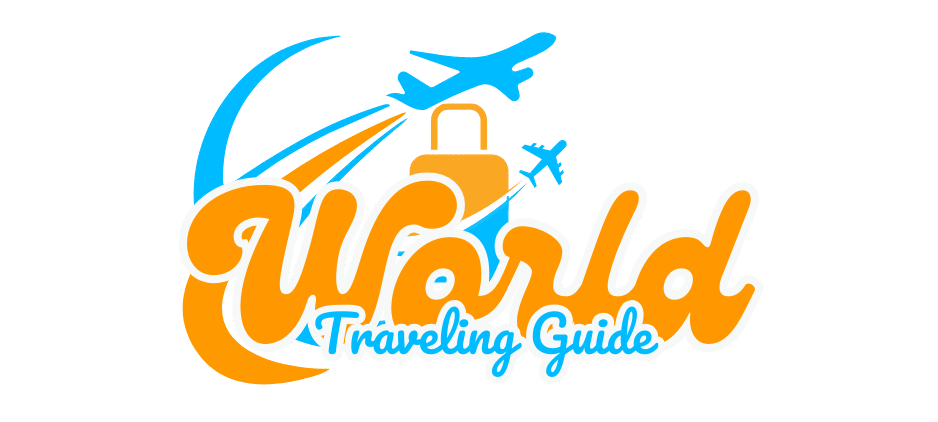Travel booking as a travel agent isn’t just about booking flights and hotels for its own sake. Rather, it is tapping into industry resources, knowing preferences of the clients, and creating amazing experiences.Here is a guide with practical steps How to Book Things as a Travel Agent? and useful tips that will aid in becoming an effective travel booker. In the end, readers will feel more confident using booking tools, talking to clients, and creating a seamless travel itinerary.
What is the role of a Travel Agent?

A travel agent is the bridge between clients and their ideal travel experiences. There’s also a person in charge of all the logistics while planning the trip and ensuring it fits the budget and the preferences and the schedules.
Key Responsibilities:
Consultation: Communicates with clients to discover their goals, wants, and budgets with respect to travel.
Research: Find out about the best means of transport, accommodation, and activity of interest.
Booking: Coordinates flights, accommodations, ground transport, and excursions.
Support: A travel agent would assist clients before, during, and even after travel to make things go smoothly.
Success in this role requires keeping up with travel trends, having a grip on booking platforms, and mastering supplier relationships.
Why is Mastering Travel Bookings Important?
Booking as a travel agent isn’t the same as booking travel for yourself online. Here’s why getting it right is crucial:
Professionalism: Clients rely on you for a polished and seamless process.
Efficiency: Using tools like Global Distribution Systems (GDS) helps you find options faster than consumer-facing booking platforms.
Customization: Your expertise allows you to craft personalized itineraries something a DIY traveler might not easily achieve.
Through learning the right processes and tools, you can save time, deliver value, and make your way against the competitive industry.
Step-by-Step Process for Booking Travel Agent

Step 1: Know the clients’ preferences.
Every great trip will be fulfilled most probably if you ask questions like: Where to travel? How much will it cost? Does the client want a luxurious stay, a boutique hotel for the night, or maybe something more, like ecologically friendly?
On the list of what your client experience should have would be must-have attractions or activities that need to be red-carpeted. It should address meal requirements and any special needs by the customer. The more they tell you, the more likely you’ll have a travel experience to suit their style.
Stage 2: Flight and Travel Research
Flight reservations are usually the first step in travel. Here is how it works:
- Utilize Amadeus, Saber, or any GDS platforms for competitive rates and availabilities.
- Set fare alerts for locking in great deals for future trips.
- Check up on airline loyalty programs to see even more discounts or freebies that might be available.
- Under transport, include:
- Car hire with clearly stated insurance and fuel policies.
- Pre-arranged private airport transfers or group shuttles.
- Travel apps can help to reserve your Flights. For this you can visite Best Budget Travel Apps for Planning Trip.
Pro tip: Always double-check the ager factor and limits on cancellation at the fare classes to upgrade without incurring extra costs.
Step 3: Get Excellent Accommodation
When making reservations for accommodations:
- Use a site like Booking.com, or deal directly with hotels for group rate/upgrade reservations.
- Check that the locale is suitable for one’s intended activities and travel arrangements.
- Find out what extra bonuses they might have, such as complimentary breakfasts and parking or Internet access.
- Always have an alternative in case of overbookings or last-minute cancellations.
Step 4: Book Activities and Excursions
Help to organize activities for durable memories:
Work with local tour operators to offer very interesting, different cultural experiences for their trip.
Include some special events or time activities the client might be interested in for added value to the trip.
Get group benefits when reserving a family or corporate traveler.
Pro-tip: Always check cancellation for activities, especially for weather-sensitive bookings.
Step 5: Travel Documentation Management
Victual your clients with proper documentation for their travel:
- Visas: This entails research on the entry requirements for the destination or assists them in coming up with applications if required.
- Travel Insurance: This is recommended for worldwide coverage pertaining to emergencies, cancellations, and lost luggage.
- Health Precautions: Inform clients of any other vaccination requirements or health advisories concerning travel.
- Given the current regulatory environment, it usually helps guide clients through the process.
Step 6: Communicating and Confirming
Inform your clients of all necessary trip details once the bookings are completed; flight details and hotel accommodation should be included in his itinerary.
- Activity confirmations and tickets.
- Emergency contacts and support information should be added.
- Provide them with continuous updates, if there is any change, and keep them within communication lines to ensure their peace of mind.
Step 7: Establish Strong Relationships with Vendors
Good relationships with suppliers will make all the difference:
Connections for Lifelong Associations Have connections with airlines, hotels, and tour operators so that you get great deals such as discounted rates or upgrades.
- Stay Updated: Always keep your lines of communication open with vendors regarding new promotions or changes.
- Be Reliable: Maintain good relations for priority access during peak seasons.
- Not only do these linkages assist in the well-being of your clients but they also add to your reputation as a travel agent.
- Essential Tools for Travel Agents: Equipping oneself with the right tools can cut the booking process by half. They include:
- Booking Platforms Need such as Amadeus, Saber, and Travelport for flights, hotels and rental cars, respectively.
- Customer Relations Management (CRM): Follow the preferences, trip history, and special requests of your customers.
- Itinerary builders: Like Travefy or AXUS release professional shareable trip itineraries as a service.
- Payment Processing Channels: Effectively manage the transactions and invoicing of clients.
- Travel Insurance Providers: Develop a good rapport with reputable insurers to assure your clients.
These tools offer efficiency and elevate the entire customer experience as well.
Upskilling Yourself in the Travel Industry
Travel is one place where change keeps coming up; the secret is to stay ahead. Here’s how to do it:
- Certifications: get accredited by organizations such as IATA, or ASTA to gain professional credibility.
- Industry Events: Make it a point to attend trade shows and webinars to learn more about emerging trends in your industry.
- Expertise Building: Specialize possibly in niche areas like luxury travel, adventure tourism, or sustainable traveling.
Knowledge will keep you in a valuable position with your clients.
Common Problems Associated with Travel Arrangements (Along with Their Solutions)
Last-Minute Cancellation
Solution: Always advocate for travel insurance and then provide alternate accommodation and flight options.
Budgetary Constraints
Solution: Be transparent in total prices and search for bundled deals or specials with availing suppliers.
Complex Itineraries
Solution: Use itinerary building tool to organize and declutter details for you and clients.
By being solution-oriented and proactive, potential barriers are actually opportunities to shine.
There is no better way to book a trip than through personal services offered by agents; although booking travel is easier now, it cannot replace the experience offered through agents, with their negotiations for exclusive deals and ability to offer expert advice.
By combining personal traits and industry insights, you definitely make every trip stress-free and unforgettable for any client.
This is how you take your travel bookings to another level. Booking as a travel agent isn’t simply an art and skill. It needs proper training in client relations, how to use tools correctly, and being updated on what’s going on in the industry to grow your career while building a solid, loyal, and happy clientele.
Are you ready to take your skill to another level?
Don’t get satisfied with just this-there are much more to learn and discover, and nothing can be considered minor. Exceptional service eventually counts.
And in addition to that, it’s a great way to stand out from the competition and add value to your clients as a travel agent. Most importantly, advanced booking strategies are very important to bring your clients amazing travel experiences.
Some of the strategies include:
As early birds catch discounts, keep an eye on early bird deals, promotion, and special offers of airlines, hotels, and other travel partners: Make sure you or your clients book these in advance to take advantage of reduced prices, added benefits to be exclusive to your clients.
- Flexible Date Search: When searching for the most economical travel dates for your clients, make use of the flexible date search to discover the best combination of price and availability.
- Use Frequent Flyer Programs to your Benefit: Most people just fly frequently to enjoy travelling towards a destination. In this case, make a hold of frequent flyer programs for earning and redeeming miles per the client with elite status and upgrade options available in your countries.
- Group and Package Holidays: Get into the group travel for your client. Group booking’s packages are mostly cheaper and hence more attractive for families, friends, and corporate trips.
- Current Trends in the Industry: Knowledge is power; keep your self-updated with coming trends in travel such as destinations, new travel technology, and why travelers are different than they used to be.
Personalize and customize such amazing experiences that they will have in the future.
Note that there is a combination of both internal knowledge of the industry along with personal service that every successful advanced booking strategy must have. It knows your client’s preferencies.
Do the travel insurance contracts entitle to adventure activities and extreme sports?
Though many travel insurance policies offer coverage for adventure activities and extreme sports, a few others do not include these benefits. Therefore, you need to study the policy terms and exclusions to confirm whether your intended activities are covered or not. Otherwise, it may be possible to purchase an additional cover, or specialized insurance for the specific activities.
Is there a reason to get travel insurance when a person already has health insurance or travel insurance through a credit card? Most likely, they may cover some emergencies during travel but might not be comprehensive enough like travel insurance. It usually provides extra benefits, including trip cancellation and interruption cover, baggage protection, and assistance services during emergencies.
Conclusion
Travel insurance is true to make sure that essential protection and peace of mind accompany your clients during their travels. With all concerns sorted out and coverage for unforeseen events, travel insurance guarantees that your clients are empowered to travel and have someone to lean on when emergency strikes. Convince them that travel insurance is part and parcel of their travel plans so that they can enjoy their experience without undue worries.
